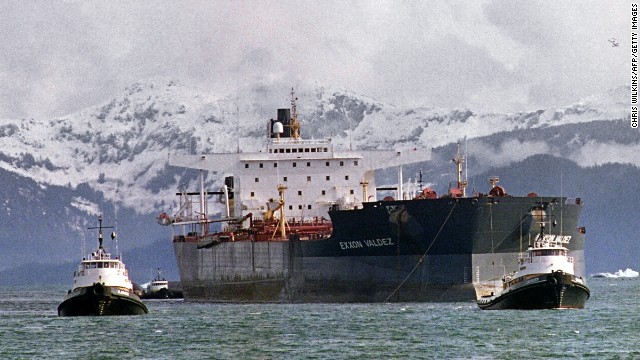
Exxon Valdez spill: 25 years later
 Tugboats
Tugboats Persistent oil poisoning, and a cascade of ecological effects, continue. There’s not much we can do now for Prince William Sound, short of protecting it from more harm. But we can keep from repeating our mistakes elsewhere. This is, after all, why we pay attention to history.
Unfortunately, we still haven’t learned the biggest lesson of all from the Exxon Valdez oil spill: The only real solution is to stop using so much oil.
Whether it’s Prince William Sound or the Gulf of Mexico, seldom is more than 10% of the spilled oil recovered. This will be especially true in Arctic waters. And regardless of how safe we make oil drilling, tankers, or pipelines, we’ll never reduce spill risk to zero.
But the larger reason to reduce our dependence on oil is this: Even if we as a society don’t care about oil spills destroying natural environments, we’ve got to care — eventually we will all care — about how burning this oil is destroying our environment through climate change.
As the south coast of Alaska struggles to recover from one spill a quarter of a century later, Alaska’s polar bears are drowning from lack of Arctic sea ice.
————————————————–
An event like this one provides damning evidence that you never full recover from such a traumatic accident with a quarter-century’s worth of long-term ramifications. Life goes on, but it never stays the same.



